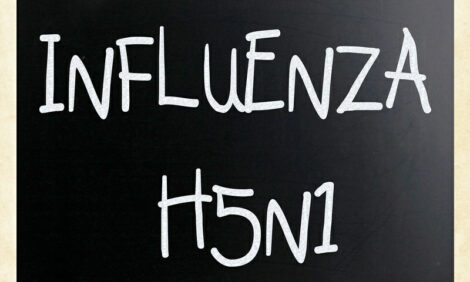



What Has Russian Ban Done to Brazil's Cattle Trade?
Strong demand from Russia has supported record Brazilian cattle prices, with demand to rise from China over the next six months.Russia's import ban has seen Brazil profiteer from diplomatic tensions, seeing live cattle price rally closer to BRL 130/15 kilos in August, according to Rabobank's quarterly beef update.
This has been a consequence of both low domestic supply and rising international demand for beef, say Rabobank's analytical team.
Moreover, Brazilian beef exports are expected to continue to grow in 2H 2014, especially considering the reopening of the Chinese market (it had been closed since an atypical case of BSE was registered in 2012 in the state of Paraná) and the current positive trade situation with Russia.
Hong Kong and Russia have continued to be the main destinations for Brazilian beef shipments during 2014, with both countries increasing their volumes in the first seven months of the year by 6 per cent and 4 per cent, respectively, versus the same period in 2013.
As a result of the firm demand for beef, particularly in developing countries, Brazilian beef export volumes increased by around 11 per cent during the first six months compared to the same period last year (see Figure 7).
In July, exports remained firm and increased 17 per cent over June and by 9 per cent versus the same month last year.
As a consequence of this strong demand, live cattle prices in August were, in inflation-adjusted terms, 18 per cent above August 2013 and 7 per cent above July 2014 (see Figure 8).
The futures market also shows a strong scenario for cattle prices in Brazil. Early September, October and November 2014 contracts were above BRL 130/15 kg for the first time in history.
An important driver for price developments in 2014 has been the shortage of finished cattle, which was reflected in a decrease of around 2 per cent in slaughter during the first six months.
Therefore, there are no signs that prices might lose strength in the coming months. Despite the good picture for Brazil in the international market, domestically consumers—squeezed by a slowing economy and persistent inflation—are likely to resist rising prices and substitute beef for pork.
In addition, there is growing concern from consumers about the difficult economy, concerns which are likely to persist at least until October’s presidential elections.
From the supply side, it is expected that beef production will gain strength in the coming months, considering that cattle which were strategically placed in feedlots during the Brazilian winter (drought season) will become available for the slaughterhouses.
Production in feedlots is expected to achieve new records in the number of head confined in 2014, supported by the drop in grain prices seen over the last months.
Nonetheless, Rabobank expects cattle prices to remain strong in the coming months and to achieve new record levels as a result of strong international demand.
There will also be some recovery in domestic beef consumption after October, when traditionally there is a seasonal increase in meat demand, which starts to reflect holiday purchases.



